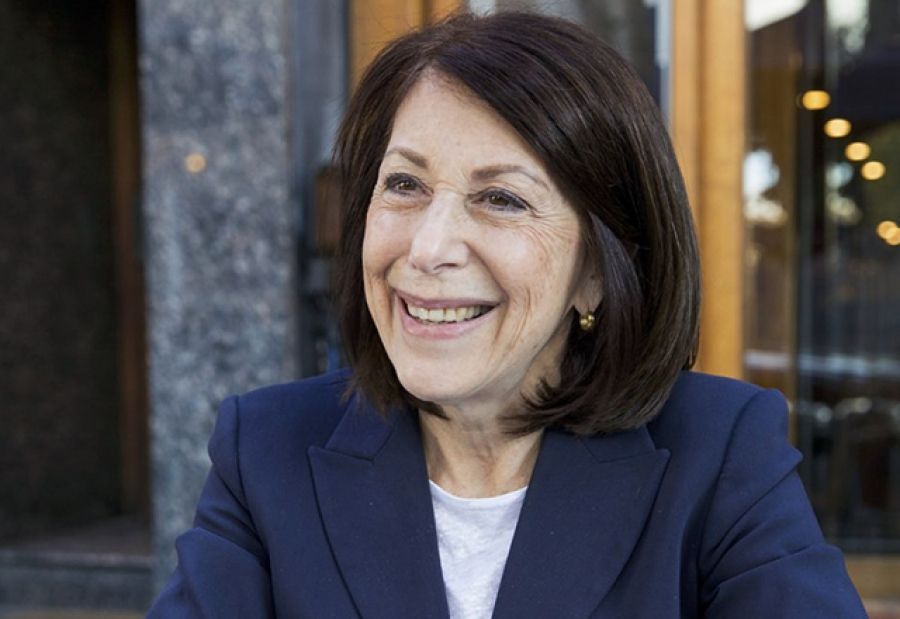
- Free Article: No
- Contents Category: Publisher of the Month
- Custom Article Title: Publisher of the Month with Louise Adler
- Review Article: No
- Online Only: No
- Custom Highlight Text:
As an English and Comparative Literature graduate whose childhood had been circumscribed by chronic asthma and excessive reading of Enid Blyton stories of naughty school girls, I was ill equipped for any other form of employment ...
What was the first book you published?
It was exciting to publish Brian Toohey’s Oyster (1989), Sanctuary (1989) by Mark Aarons, and Stephen Thomas Knight’s The Selling of the Australian Mind (1990).
Do you edit the books you commission?
I’m usually involved in the early stages – agreeing the structure and voice and determining the audience. The fine surgical work with a scalpel is done by far better editors.
How many titles do you publish each year?
Forty-five to sixty new titles.
What qualities do you look for in an author?
My spirits are lifted by the discovery of a writer who has courage, who is passionate about an idea that adds to public debate rather than rehearses well-worn themes, who is willing to think hard about audience, and who is able to promote their book.
In your dealings with authors, what is the greatest pleasure – and challenge?
It is always a thrill to match a writer and an idea. It might sound simple, but my greatest pleasure is discovering that a writer you hoped would deliver actually does. We recently published Cardinal: The rise and fall of George Pell. I had watched the investigative reporting by Louise Milligan for ABC’s 7.30 and was impressed by her meticulous work regarding a deeply disturbing issue. To see that integrity brought to the book project was inspiring. Challenges? Managing authors’ expectations about the market is never easy: most non-book business people are flabbergasted by the facts and figures. Equally challenging is managing the author’s disappointment (and our own) when a book we fervently believed in doesn’t find the readers we believed it deserved.
Do you write yourself? If so, has it informed your work as a publisher?
Writing the occasional review is a personal indulgence. I like the reading, the immersion in a text and shaping a response. Perhaps it is a throwback to my student days in a variety of English and Comparative Literature departments.
Who are the editors/publishers you most admire?
I am a big fan of Sarah Beshtel, a quintessential New York editor who publishes my kind of books. I do have particular respect for those disrupters and outsiders who work without the safety net provided by being part of an international publishing business. However there are terrific publishers in all Australian publishing companies, particularly those who are members of the Australian Publishing Association, so I won’t single out any one Australian publisher.
In a highly competitive market, is individuality one of the casualties?
I am not sure that is correct. We have seen that individuality often prevails to rise above the dross and the rip-offs. The Hare with Amber Eyes (2010) should serve as a morality tale for all of us: authored by a British ceramicist, concerning Japanese netsuke and a Jewish family caught in the cross-currents of twentieth century history. No one in publishing today predicted that book would become a bestseller.
On publication, which is more gratifying – a brilliant launch, a satisfied author, encomiastic reviews, or rapid sales?
All of the above. We have had brilliant launches. We will never forget the bravura and riveting fifty-eight minute performance by Paul Keating to launch Gareth Evans’s Cabinet diaries. Good reviews vindicate our judgement, although these days they have little impact on book sales. Rapid book sales are terrific, but extended book sales are even better.
What’s the outlook for new writing of quality?
Sadly, I don’t think it is possible to say that good books inevitably find their readers. More and more work, particularly by the author, is required to make a book a success. Cautious optimism is probably necessary in thinking about the future. Fortunately for the literary culture and the community of readers, writers continue to feel compelled to write and their publishers continue to be a weird species of inveterate enthusiasts.
Louise Adler is the Chief Executive of Melbourne University Publishing and the President of the Australian Publishing Association.


Comments powered by CComment